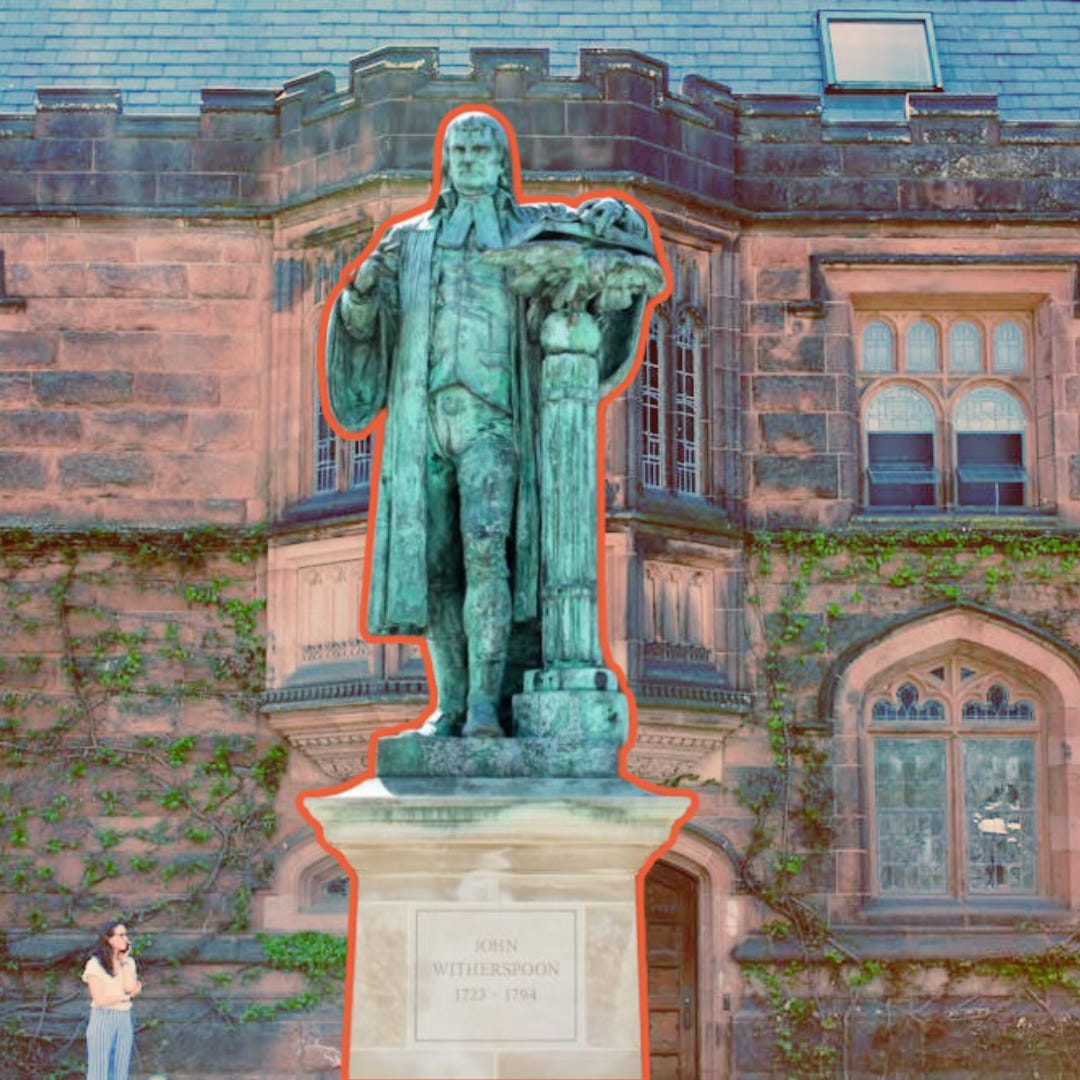Princeton’s misguided attempt to erase its former president’s legacy
by Stuart Taylor '70 and Ed Yingling '70
Princeton's Decision to Remove Witherspoon Statue Draws Criticism
In an October 2024 National Review article titled "Princeton Erase Legacy," authors Stuart Taylor Jr. & Edward Yingling criticize Princeton University’s decision to remove the statue of John Witherspoon, a Founding Father and Princeton’s sixth president. The move, they argue, is emblematic of a troubling trend in higher education where historical figures are judged solely through a contemporary lens, ignoring their broader contributions.
Background on Witherspoon
The decision to remove Witherspoon's statue stems from his historical ties to slavery. While Witherspoon made major contributions to American independence and Princeton’s academic legacy, his status as a slaveholder has led to calls for his removal from institutional recognition.
Critique of Princeton’s Decision
Taylor and Yingling argue that Princeton’s move disregards Witherspoon’s significant role in shaping both the university and the nation. They contend that historical figures should be viewed in full context rather than erased for aspects of their lives that do not align with present-day values.
Implications for Free Speech
The authors express concern that the decision reflects a growing intolerance for historical complexity within academia. By removing representations of historical figures due to aspects of their past now deemed objectionable, Princeton may be setting a precedent that discourages open debate and critical engagement with history.
Conclusion
The removal of Witherspoon’s statue underscores a larger conflict within higher education: the tension between acknowledging historical injustices and preserving the legacies of those who made substantial contributions to American institutions. For free speech advocates, this decision raises alarm bells about the future of historical discourse at Princeton and other elite universities.
🔗 Read the full article here: National Review – Princeton Erase Legacy.


